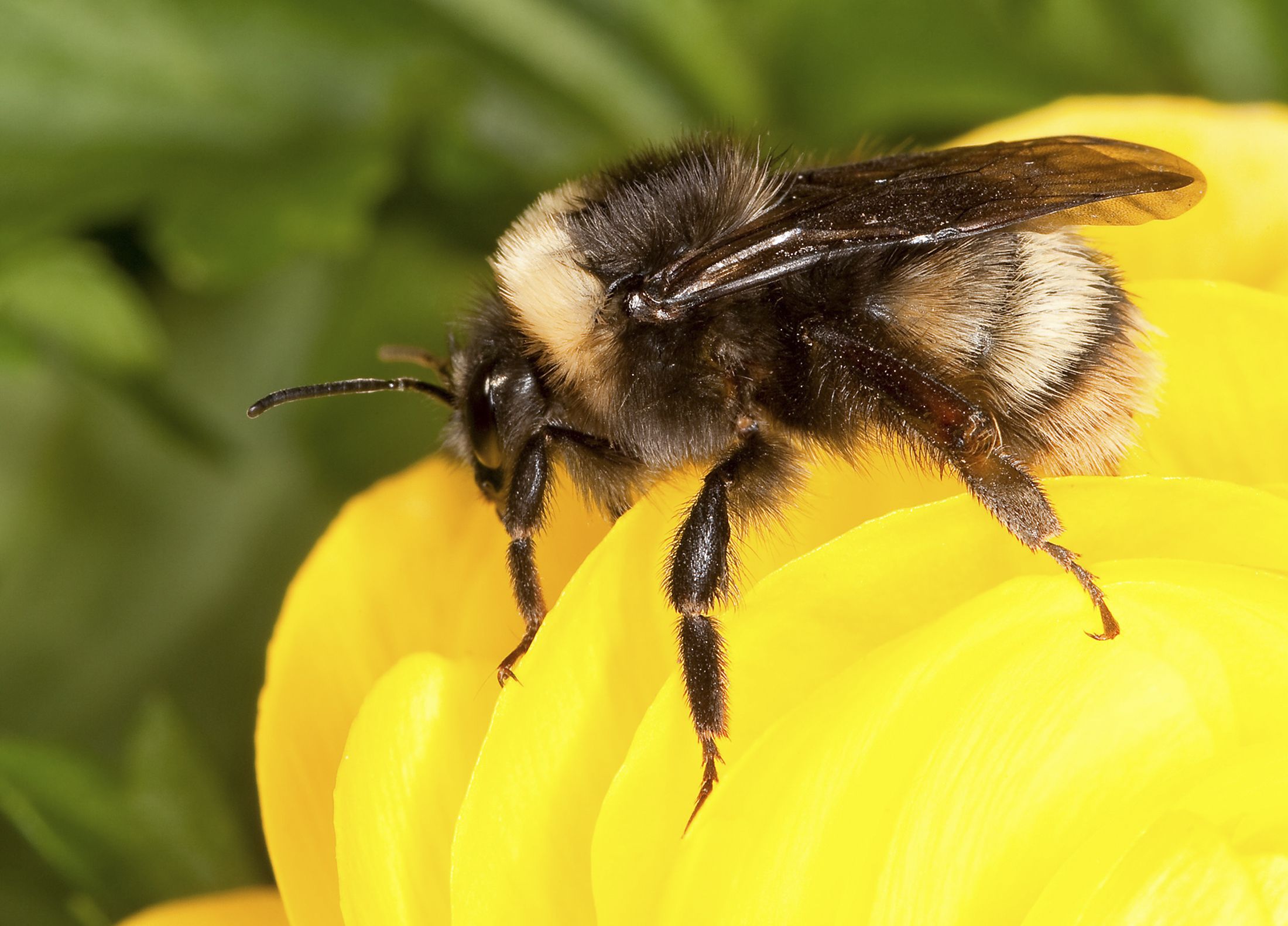
You've probably noticed that bumblebees are covered in tiny hairs. Cute, right? But these hairs serve an important purpose. Besides allowing the bees to collect pollen and fertilize flowers, the hairs also can sense electric fields.
Gregory Sutton, a researcher at the University of Bristol in the United Kingdom, showed in a 2013 paper that bees can detect the electrical fields of flowers. It took a few years, but Sutton and his colleagues have now figured out exactly how. In a study published May 30 in the journal Proceedings of the National Academy of Sciences, they showed that the hairs covering these bees bend ever so slightly when they encounter the electric fields created by flowers.
"There is, all the time, a background electric field in the atmosphere," Sutton explained to NPR. "Any plant that's connected to the ground will generate its own electric field just by interactions with the atmosphere."
To see if the hairs were connected to the bees' ability to read this electric field, Sutton's team measured both the movement of hairs using tiny lasers and the electrical activity at the bottom of hair cells using a tiny electrode. They found that the hairs move toward or away from electrical currents created by flowers, similar to how human hairs are attracted to static electricity. This movement creates a firing of nerve cells to alert the bee to the magnetic field's presence.
Sutton theorizes that this ability helps the animals detect subtle differences between flowers that may not be apparent visually, but it may also help them navigate using the Earth's magnetic field, according to the study.
In the lab, the bees were able to sense an electric field up to 22 inches away, though Sutton says this was under ideal conditions, and in the real world a distance of about 4 inches is more likely.
Many insects are covered in tiny hairs, leading Sutton to wonder if other insects have this ability. "This mechanism of using tilting body hair to measure electric fields could be a ubiquitous thing in the insect world," he told The Christian Science Monitor.
Uncommon Knowledge
Newsweek is committed to challenging conventional wisdom and finding connections in the search for common ground.
Newsweek is committed to challenging conventional wisdom and finding connections in the search for common ground.
About the writer
Douglas Main is a journalist who lives in New York City and whose writing has appeared in the New York ... Read more
To read how Newsweek uses AI as a newsroom tool, Click here.








